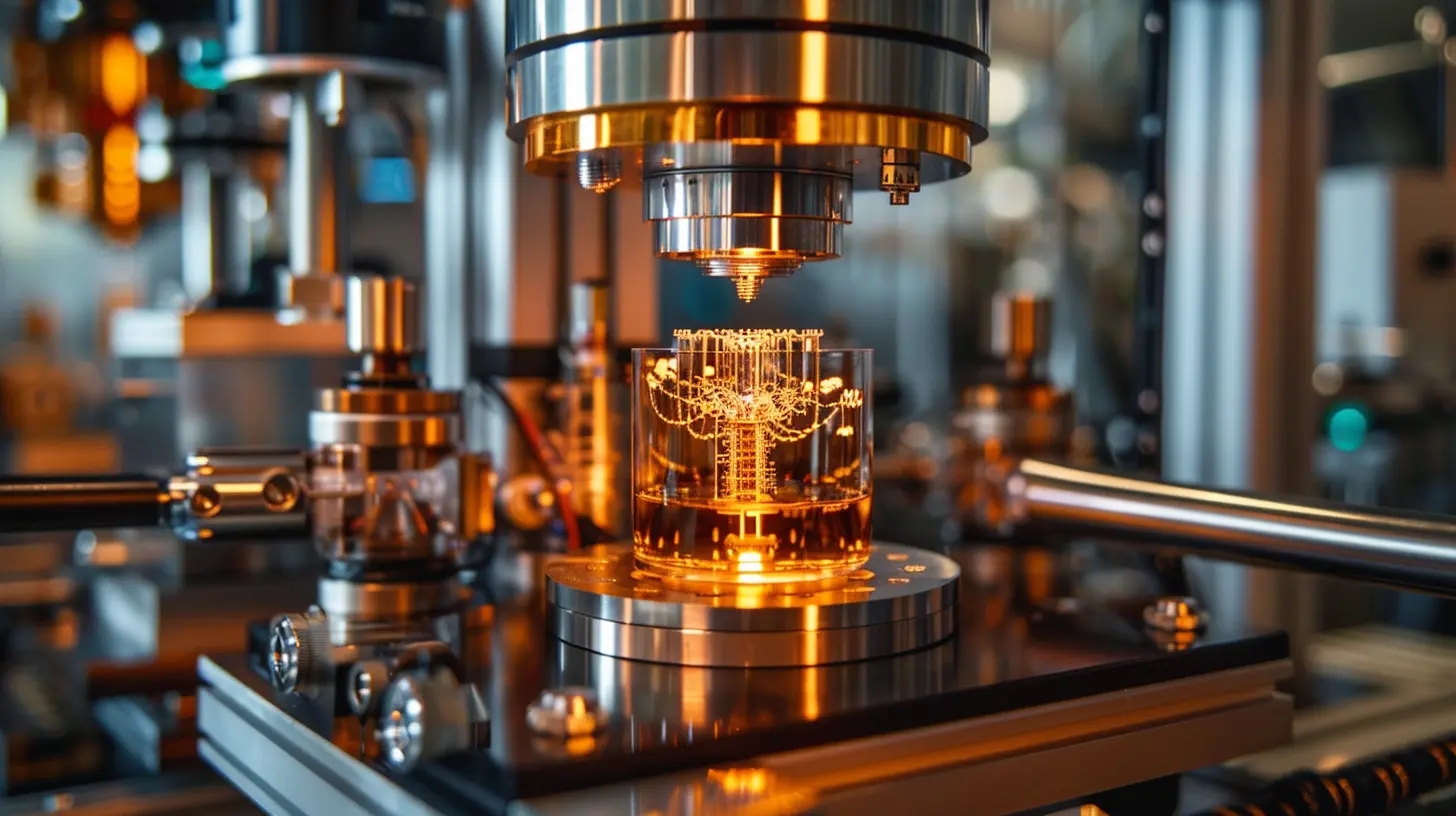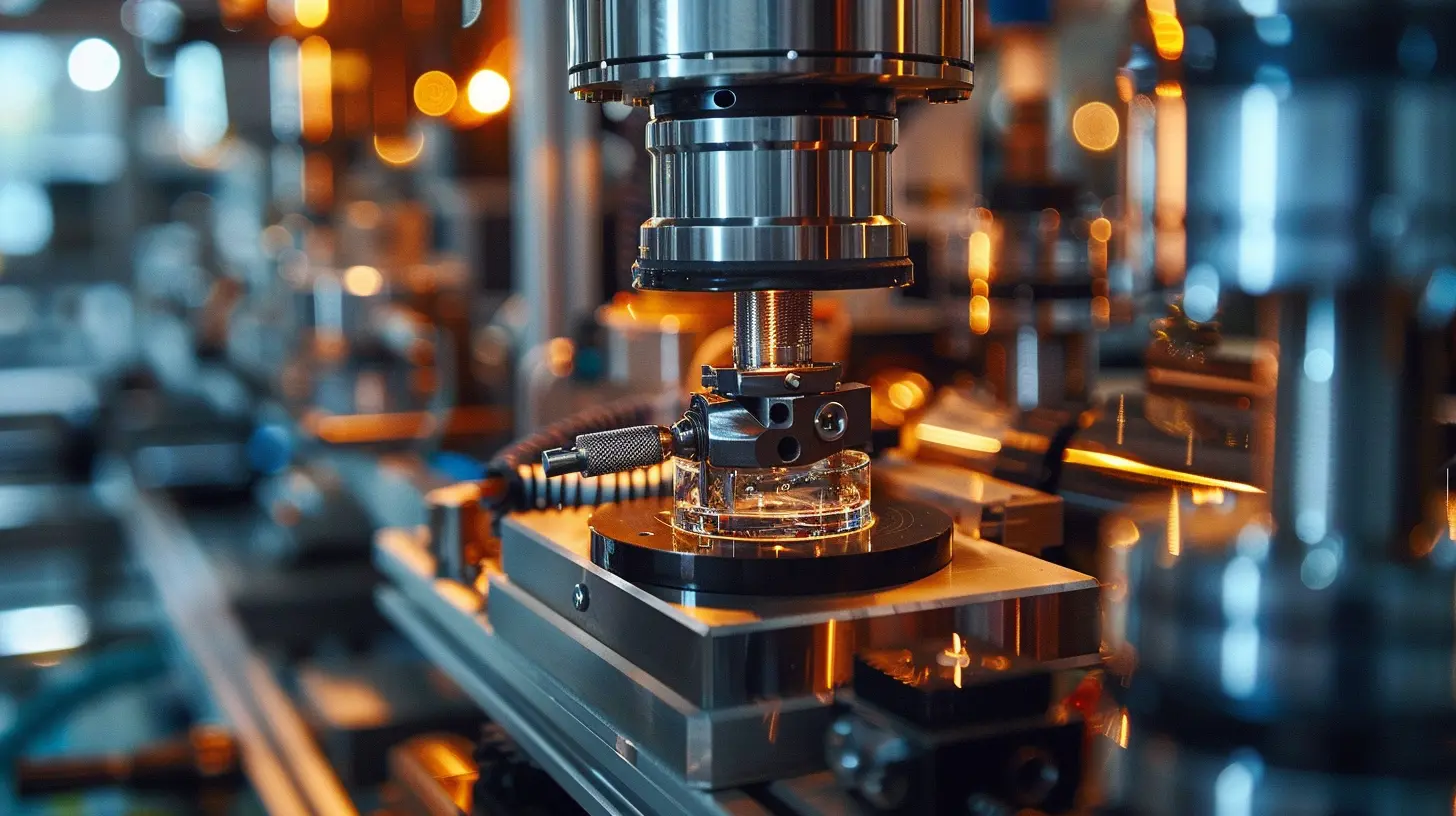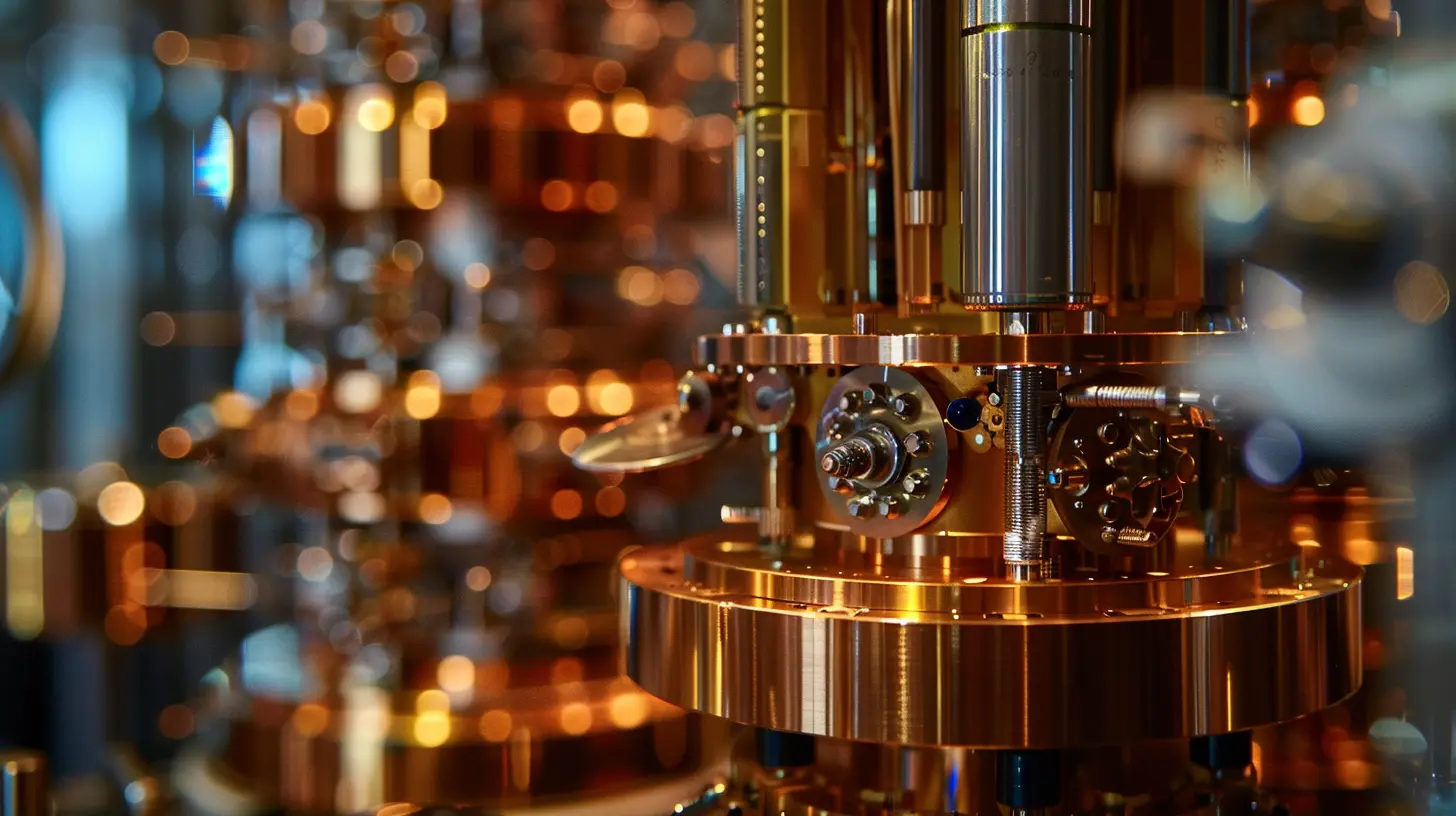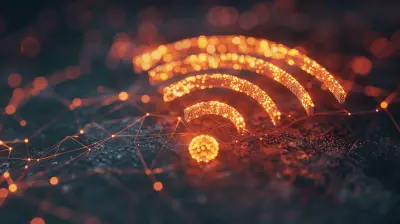Quantum Sensors: Revolutionizing Precision Measurement
22 November 2025
Technology is advancing at an exhilarating pace, and one of the most exciting frontiers is quantum sensors. These cutting-edge devices harness the strange and fascinating principles of quantum mechanics to measure physical properties with mind-blowing precision.
From detecting gravitational waves to revolutionizing medical imaging, quantum sensors are set to redefine our understanding of the physical world. But what exactly are they? How do they work? And why should we care? Let's dive in.
What Are Quantum Sensors?
Quantum sensors leverage the unique properties of quantum mechanics—such as superposition and entanglement—to make ultra-precise measurements. Unlike classical sensors, which rely on standard physical interactions, quantum sensors take advantage of atomic and subatomic phenomena to detect even the smallest changes in their environment.Essentially, they can measure things like time, temperature, acceleration, and magnetic fields with an accuracy that traditional sensors simply can't match. This makes them game-changers across a variety of fields, from healthcare and navigation to defense and fundamental physics.
How Do Quantum Sensors Work?
At their core, quantum sensors rely on the quantum states of atoms, photons, or other particles. Here are some key principles that make them so powerful:1. Superposition
Superposition is the ability of a quantum system to exist in multiple states simultaneously. A quantum sensor can use this property to measure two different conditions at the same time, increasing accuracy.2. Entanglement
Entanglement is when two or more particles become interconnected, meaning the state of one depends on the state of the other—regardless of distance. This allows quantum sensors to synchronize measurements with unprecedented precision.3. Interference
Quantum interference occurs when quantum states overlap, enhancing or canceling each other out. This is useful in amplifying faint signals that would otherwise be undetectable.By tapping into these quantum effects, researchers can create sensors that push the limits of precision in ways never seen before.
Types of Quantum Sensors
Quantum sensing technology isn't one-size-fits-all. There are several types, each designed for specific applications. Let’s break down a few of the most notable ones.1. Atomic Clocks
Atomic clocks are one of the oldest and most well-known quantum sensors. They use the vibrations of atoms (usually cesium or rubidium) to keep time with mind-blowing accuracy. These clocks are critical for GPS systems, telecommunications, and financial markets.2. Quantum Gravimeters
Gravity sensing has gone quantum! Quantum gravimeters measure gravitational fields with extreme accuracy. This has major implications for geological surveys, detecting underground structures, and even mapping Earth's tectonic activity.3. Quantum Magnetometers
Magnetic fields influence everything from brain activity to planetary movement. Quantum magnetometers, such as SQUIDs (Superconducting Quantum Interference Devices), can detect incredibly faint magnetic fields, making them invaluable for medical imaging, archaeology, and space exploration.4. Quantum Accelerometers
Used for ultra-precise navigation, quantum accelerometers measure acceleration without requiring GPS signals. This could be a game-changer for submarines, spacecraft, and even self-driving vehicles operating in GPS-denied environments.5. Quantum Imaging Sensors
Quantum imaging sensors use entangled photons to create sharper images with less radiation. This has promising applications in healthcare, allowing doctors to take clearer medical scans with minimal exposure to harmful radiation.
Practical Applications of Quantum Sensors
Now that we have a decent understanding of how quantum sensors work, let’s look at some real-world applications where these revolutionary devices are making a difference.1. Healthcare and Medical Imaging
Quantum sensors are expected to transform medical diagnostics. They can detect even the tiniest variations in magnetic fields generated by the human body, making them ideal for early detection of neurological diseases such as Alzheimer’s and Parkinson’s.2. Navigation Without GPS
Imagine an aircraft flying through a GPS-denied environment, like deep space or underwater, and still knowing exactly where it is. Quantum accelerometers can enable highly accurate navigation without relying on external signals, which is crucial for military and space applications.3. Earthquake Prediction and Geophysics
Quantum gravimeters can detect slight changes in Earth's gravitational field, allowing scientists to predict earthquakes and volcanic eruptions with higher accuracy. This could provide valuable time to evacuate people from disaster-prone areas.4. Secure Communication
Quantum sensors play a role in quantum communication, a field that promises unhackable data transmission. Quantum key distribution (QKD), for example, uses quantum principles to make eavesdropping virtually impossible.5. Defense and Surveillance
Quantum sensors have the potential to enhance defense systems significantly. Ultra-sensitive quantum magnetometers could detect stealth submarines and aircraft with unparalleled accuracy, changing the landscape of military technology.6. Space Exploration
Quantum sensors are crucial for deep-space missions, helping spacecraft navigate, measure gravitational interactions, and even search for signs of extraterrestrial life by detecting minute variations in space-time fabric.Challenges in Quantum Sensing
As groundbreaking as quantum sensors are, they come with their own set of challenges.1. Extreme Sensitivity
Quantum sensors are highly sensitive to their surroundings. While this is their greatest strength, it also makes them vulnerable to noise and external interference.2. Complexity and Cost
Building and maintaining quantum sensors is expensive and requires highly controlled environments. Currently, only specialized research institutions and high-tech industries can afford them.3. Scalability
Ensuring that quantum sensors can be mass-produced and integrated into everyday technology is another hurdle. However, as quantum technology matures, we can expect costs to drop and accessibility to increase.The Future of Quantum Sensors
Quantum sensors are still in their early stages, but their potential is too great to ignore. Over the next decade, we can expect:- Smaller, more affordable quantum sensors that fit into consumer devices.
- Improved medical diagnostics with non-invasive quantum imaging.
- Quantum-enhanced AI and machine learning applications.
- Widespread adoption in defense, aerospace, and environmental monitoring.
The possibilities are endless, and we are only scratching the surface. As researchers continue to unlock the mysteries of quantum mechanics, precision measurement will reach new heights, fundamentally changing how we interact with the world.
Final Thoughts
We are standing at the dawn of a quantum revolution, and quantum sensors are leading the charge. They will redefine everything from healthcare and navigation to defense and space exploration. While challenges remain, one thing is clear—quantum sensors are not just futuristic gadgets; they are the future of precision measurement.Whether it's detecting gravitational waves or enabling secure communication, quantum sensors promise to reshape industries and improve lives. So, the next time you hear about quantum mechanics, remember—it's not just theoretical physics; it's powering the next wave of technological advancements.
all images in this post were generated using AI tools
Category:
Quantum ComputingAuthor:

Reese McQuillan
Discussion
rate this article
2 comments
Evelyn Soto
Game changer for measurements!
November 27, 2025 at 4:01 AM

Reese McQuillan
Thank you! We're excited about the potential of quantum sensors to transform measurement accuracy and precision.
Jamie Howard
Absolutely thrilled to see how quantum sensors are transforming precision measurement! Their potential to enhance accuracy across various fields is simply astounding. Can't wait to witness the innovative applications that will emerge from this groundbreaking technology! 🎉🔬✨
November 26, 2025 at 6:00 AM

Reese McQuillan
Thank you! We're equally excited about the pioneering applications of quantum sensors and their transformative impact on precision measurement! 🎉


